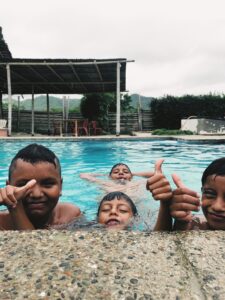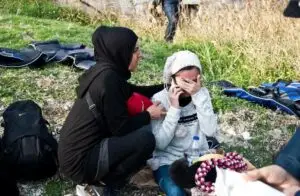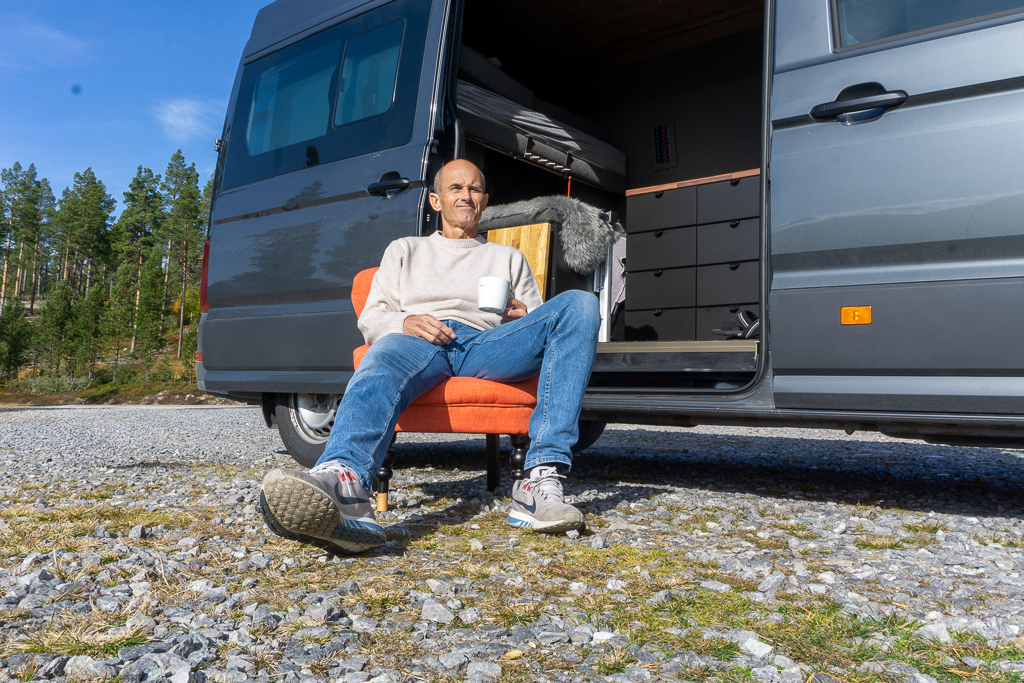It is possible he said it in another way. Heraclitus is known as a man who enjoyed war and who glorified it. Whether the guy was a decent bloke or not – his statement is true. War changes and war damages. Or as a good friend of mine once said: war is damage-producing business.
PTSD and Isolation in Veterans
People who have experienced trauma and especially people who have been in war or have been soldiers are in the risk group for getting PTSD with all its following unpleasantness. Isolating after returning from the service is very common. One distances oneself from emotions, good and bad, and therefore fails to distinguish between the people one should / wants to have around and those one should not have around.
The result is that one isolates oneself from friends, boy/girlfriends, spouses, children, etc. This of course exacerbates the problem. Being around other people after returning from service can be overwhelming and uncomfortable without PTSD, but those who have seen horrible things while deployed will have a harder time in a way that the average civilian cannot understand. This leads to even higher incidences of isolation in these people.
It is evident that military veterans present unique experiences of loneliness and social isolation, especially older veterans. This requires specific attention outside of campaigns targeted at the non-military population.
Why do veterans isolate themselves?
Isolation as Avoidance is one of the key aspects of Posttraumatic Stress Disorder. Avoidance of stimuli that reminds the veteran of traumatic events. … Isolation also serves to help veterans avoid the stigma of mental health concerns.
In nonveteran older adults, living alone influences outpatient care use, but its importance in the veteran population has not been well studied.
The Endless Journey Home
Here is an excerpt from The Endless Journey Home by Specialist Joe Collins of different stages of withdrawal from society
Early Stages:
The individual will begin to slowly start cutting himself or herself off from society. These symptoms can be shown by a lack of wanting to go out to social places that they used to find enjoyable. The individual may not show an interest in meeting new people or feels uncomfortable or alert if placed in a situation with a large crowd of unknown people. They might start eating meals alone or may become workaholics, throwing themselves into materialistic things rather than people.
At this stage, the person usually begins to sever many social ties, only leaving those close members of family or closest friends who he / she trusts and feels enough comfort around to allow the relationship to last. Human interaction is an important part of emotional growth and recovery. Without it, the soldier will continue on a downward spiral.
Later Stages:
Usually by this time the person is nearly crippled by other symptoms and often can be misdiagnosed as being depressed. By this stage the person has most likely completely cut him or herself off from society including friends and family and will most likely surround themselves only with materialistic things.
They usually will only go out on a required basis (to get food or medication). Often, to reach this level of isolation, the person is in a severe, deep stage of PTSD and needs immediate medical attention. Without it, things will only get worse if left untreated.
Is this life - really?
We are just human beings and like all human beings we need predictability and security. But there is a Paradox within predictability and stability.
It gets boring fast. We live our lives exactly the same from day to day. Some of us like it, others hate it. But we all have a limit to what seems boring and what is not. The problem is that we have different starting points.
Not only different starting points, but the different phases of life we are in will eventually change our needs. Not to mention different life experiences. (as veterans often have) As young people, we needed things to happen. Fast. Often. Continuously
A year when you are 10 years old is infinitely longer than a year when you are fifty years old. (one year when you are ten years old is ten percent of your life. A huge part. One year when you are fifty is 2 percent.) Of course we have a much higher level of activity when we are young. Some of us were obviously more outgoing than others, but in general we all have a certainty that young people are more out partying, drinking, having sex, living the life, so to speak, etc.
Later when we are so-called established, maybe even had children, it is a time where we like to take things more calmly. (Maybe not so strange when you have a toddler who keeps you wake every night and you have a job (hopefully) to be at during the day. Then a few years go by and you start to long for something extra again.
You start asking yourself – Is this life? – really?
Finding the balance
The point of living in a balance is precisely this: the balance. Find the right existence for you, where on the one hand you feel that you live a quiet life and think it’s wonderful, while this life on the other hand gives you enough “challenges”, enough for you to see that the quiet life is good – sometimes.
To be human means to be constantly in the grip of opposing emotions, to daily reconcile apparently conflicting tensions. I want this, but I need that. I cherish this, but I adore its opposite, too.
—Stephen Fry
The paradox
This is a Paradox, but a solvable Paradox for most of us.
Mark Manson says:
Think about all those cheesy horror movies for a second. The scariest parts aren’t when the guy is slamming an ax into a kid’s head or even the climactic shootout at the end where Officer Bumblefuck heroically saves the day. The scariest parts are when the main character is walking alone into a dark house, the power is off, and there are strange sounds coming from upstairs.
It’s not the actual violence that scares us. It is the uncertainty and possibility for disaster that emotionally drives us absolutely bonkers.
The need for a stable and predictable environment is a core human need.10 What frightens us or gives us anxiety is not when bad things happen — it’s when we’re not sure whether a bad thing will happen or not.
And this is where veterans have a different attitude to predictability and future. I’m not saying that veterans or people with trauma automatically need a calmer life (or duller life.) On the contrary. There are many examples of people with trauma who throw themselves off mountain peaks with only a silk cloth loosely wrapped around them, or set off down rivers in an inflatable boat – or seek solitude in a mountain hut without electricity and water or disappear into a desert to find themselves.
The equilibrium.
And it is all about balance. A trauma, especially a trauma after violent events, has often done something to your brain. My psychologist told me that I had a “war scheme” in my head and that was fine, as long as you were in a war. But in a peaceful environment, where children play and adults talk to each other (unarmed), a “war scheme” will create conflicts about how the body responds to impulses.
A child’s laugh often triggers a stress reaction in me because it reminds me of children having fun in the streets of the village before the rockets hits. And what followed was anything but laughter and it is the expectation that creates my stress.
Bird chirping on a summer day is a similar example. I get stressed by bird chirping on a summer day because the perpetual bird chirping surrounded us all the time while I was on duty. The reason was that the inhabitants where we had the camp, gathered sparrows in large nets before they fried and ate them.
Unusual for us who came from places in the world where birds were nicely wrapped in plastic, finished filleted in the supermarket and did not hang in a net like fish in the sea and screamed in fear of being caught. And then the birdsong ceased in the morning when the rockets struck. (Have you noticed that birds (and animal sounds) subside when shooting starts? Always.
The thermostat in our lives
As a thermostat that separates the extremes, we humans (damaged or not) must also distinguish between what becomes too little and what becomes too much. I can list a dozen people I know who, after war experiences, have taken it all out and live very extrem lives.
This means that they have felt the need for peace and quiet and set out on a trip in the deserts or to the cabin that does not have any of what we humans want to feel comfortable. Conversely, these people have often been through a period where they did the opposite. They parachuted, some enlisted again (and some sadly died because of it) and still others replaced wife and children with wife and children and wife and even more children.
Were they happy?
Mostly, no. Some were obviously happy while they were doing this to begin with, but remember Fry. But it ended. And this is where the thermostat comes into the picture. Instead of going to an extreme – both ways – find the balance between the two extremes. In people with trauma, it is about the ability to feel something. Anything, really.
One becomes numb from being traumatized and that numbness tries to be removed by going to the extremities. That is why many veterans are either “on” or completely “off”
To resolve the paradox of control, we must pursue both stability and change simultaneously. That means consciously changing our lives gradually and reasonably. That means setting goals. That means incremental changes done with purpose. That means creating smart habits.
That means imagining the person you desire to be and taking small, baby steps towards that person.
The solution
Of course, I have not found the balance in my own life. Not at all. But I have also understood that balance is important to find. This means that when I feel bored of waking up in the morning, drinking my coffee, doing what I want to do during the day and then repeating the same thing the next day, I try to find something that challenges me. My thing is training – as I have mentioned earlier, but also obscure projects.
(Building a campervan without any knowledge or handyman capabilities for example. (Picture)) Others have several other things they do. (Someone I know does base jumping and has been doing it for so many years that I reckon his balance is there. My point is that veterans, people with trauma often have a disturbed balance of equilibrium.
Jean-Paul Sartre was a special guy. He was taken by the Nazis and held captive for nine months before being released. He then joined the French resistance movement, and carried out many attacks on the Nazis.
These experiences had a profound influence on Sartre and his writing, which in the decades after the war would undoubtedly become the most important philosophical works of the 20th century.
Sartre believed that to truly generate a life of meaning for oneself, you had to be willing to risk death. But he also noted that this willingness to choose something to die for is absolutely horrifying and impossibly difficult for most of us most of the time. We avoid this responsibility to choose what matters to ourselves. We distract ourselves and numb ourselves to it.
What about veterans, who have seen death and depravity and, not least, have risked their lives more than once? No wonder their balance is completely different from that of ordinary people.
The thermostat is broken. Think about that the next time you want to replace your life with something super exciting, or vice versa, when you want peace and quiet – do not buy a tent and disappear into the Sahara. Create a space within your own life to live exciting enough and calm enough. It requires some energy and thinking and patience and must be done slowly, but it helps you to avoid the big life-threatening events. (Leaving your wife, children, burning bridges…)
Find the balance.
What is PTSD?
Post-traumatic stress disorder, PTSD, sometimes known as shell shock or combat stress, is an anxiety disorder that can occur in people who have been exposed to particularly frightening and horrific experiences such as aggravated violence, abuse, war and concentration camps, disasters, torture, rape, serious accidents or serious crimes (such as armed robbery).
Mobilization, or fight-or-flight, occurs when you need to defend yourself or survive the danger of a combat situation.

What is a lifetime, really?
Twenty good years? A good friend of mine once said while walking in the mountains of Gran Canaria.“Knut, we have twenty good years left. Use

How to protect yourself from your PTSD, when the world is on fire
(It is war. And it is mine. ) The headlines that meet me today are about the war in Ukraine. Alarms going off, people fleeing,

The thin film of civilization
The thin film of civilization This picture are taken on Lesvos. Her husband and baby drowned on the way over from Turkey. This is a
